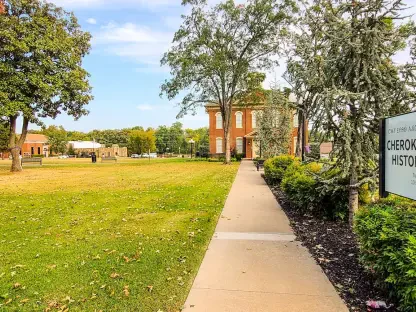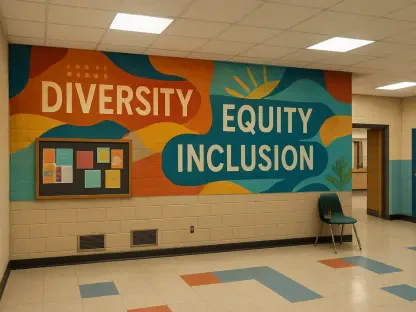In a transformative move for higher education in North Texas, the O’Donnell Foundation, a Dallas-based philanthropic powerhouse, has committed a staggering $50 million to enhance student success and drive economic mobility across the region. This landmark donation, unveiled on October 6 at the Dallas County Economic Mobility Summit held at the Dallas Museum of Art, targets four key institutions: the Dallas College Foundation, the University of North Texas at Dallas (UNT Dallas), the University of Texas at Dallas (UT Dallas), and Southern Methodist University (SMU). With the support of the Commit Partnership, a coalition dedicated to advancing education and economic progress, this investment focuses on breaking down financial and academic barriers for low-income students through innovative programs, financial aid, and early readiness initiatives. The implications of this gift are profound, promising to reshape opportunities for countless young adults in Dallas County and set a new standard for educational equity.
Strategic Distribution of a Historic Gift
The $50 million donation has been meticulously allocated to address the unique needs of each recipient institution, ensuring maximum impact for students facing diverse challenges. The Dallas College Foundation receives the largest share, $20 million, to establish the Dallas County Promise Transfer Success Fund, which provides stipends for transfer students to cover unexpected costs and living expenses as they move to one of nine participating universities. This fund is further strengthened by an additional $10 million from the foundation itself, demonstrating a deep commitment to easing the financial burdens that often derail academic progress. Meanwhile, UNT Dallas is awarded $17 million to bolster programs aimed at improving access and retention for low-income and transfer students, addressing critical gaps in support systems at a crucial stage in their educational journey.
Beyond these allocations, UT Dallas secures $8 million to expand early recruitment and college readiness initiatives targeting middle and high school students, fostering a culture of preparation long before enrollment. Similarly, SMU is granted $5 million to enhance comparable efforts, ensuring that students are equipped to handle both the academic and financial demands of higher education. These tailored distributions reflect a keen understanding of the varying costs of attendance, which range from approximately $25,478 at Dallas College to as much as $93,090 for on-campus students at SMU. By addressing such disparities, the funding aims to level the playing field, allowing students to prioritize their studies over economic stress and paving the way for greater academic success across North Texas.
Education as a Catalyst for Economic Mobility
Central to this initiative is the conviction that education serves as the most powerful tool for economic advancement in communities like Dallas County, where systemic barriers often limit opportunities. Bill Solomon, chairman of the O’Donnell Foundation, has articulated a clear vision: extending access to quality education significantly boosts the likelihood of self-sufficiency for graduates, enabling them to contribute meaningfully to the local economy. This perspective resonates with broader efforts by the Commit Partnership, which has documented encouraging progress in the region, including a rise in young adults earning a living wage from 22% over a decade ago to 31% in recent data. Such statistics underscore the tangible link between educational attainment and improved financial outcomes, reinforcing the urgency of investments like this one.
This focus on economic mobility also highlights the broader societal benefits of an educated workforce, as higher completion rates in college translate to stronger local economies and reduced cycles of poverty. The programs supported by this donation are designed to create sustainable change, targeting not just immediate financial relief but also long-term skill development and career readiness. By aligning educational initiatives with economic goals, the effort ensures that students are not only prepared to enter the job market but are also positioned to thrive in it. This holistic approach signals a shift toward addressing root causes of inequality, offering a blueprint for how philanthropy can drive systemic improvement in underserved areas.
Empowering Low-Income and Transfer Students
A significant portion of this historic gift is dedicated to supporting low-income and transfer students, populations often burdened by financial constraints and complex academic transitions. Through programs like the Dallas County Promise, eligible high school students gain access to tuition-free college opportunities alongside personalized support services that guide them through their educational paths. The stipends provided by the Dallas County Promise Transfer Success Fund are particularly vital, covering unforeseen expenses that can otherwise force students to abandon their studies. This targeted assistance, especially for those eligible for Pell grants, ensures that economic hardship does not dictate academic outcomes, creating a more equitable landscape for higher education.
Moreover, the emphasis on success coaching addresses the navigational challenges these students frequently encounter when moving from community colleges to four-year universities. Personalized guidance helps them adapt to new academic environments, manage coursework, and access resources that might otherwise remain out of reach. This comprehensive support system is crucial for retention, as many students in these demographics face higher dropout risks due to a lack of mentorship or institutional familiarity. By prioritizing both financial and academic support, the initiative tackles multiple barriers simultaneously, fostering an environment where vulnerable students can focus on learning and growth without the constant weight of economic uncertainty.
Building Futures Through Early Intervention
Recognizing that preparation for higher education must begin well before college applications, a key component of this funding targets early intervention through readiness programs for middle and high school students. By allocating resources to initiatives at institutions like UT Dallas, the investment seeks to build a robust pipeline of prepared learners who understand the value of higher education from an early age. These programs focus on developing essential skills, fostering academic confidence, and providing exposure to college environments, all of which increase the likelihood of enrollment and eventual graduation. This forward-thinking strategy aims to transform aspirations into actionable plans for young students across North Texas.
Equally important is the cultural shift these early interventions promote, as they encourage families and communities to view college as an attainable goal rather than a distant dream. By engaging students during formative years, the programs address potential obstacles—such as inadequate academic preparation or misinformation about financial aid—before they become insurmountable. This proactive stance not only benefits individual students but also strengthens the educational ecosystem in Dallas County by creating a steady flow of motivated, well-equipped candidates for higher learning. The long-term vision is clear: starting early can yield exponential returns in terms of student success and regional progress.
Strength in Collaborative Efforts
The effectiveness of this $50 million investment hinges on the power of collaboration among a diverse array of stakeholders, including school districts, community colleges, universities, nonprofits, and foundations. The Commit Partnership plays a pivotal role in uniting these entities, facilitating seamless coordination to ensure that resources are maximized for student benefit. This cooperative framework is evident in the integration of initiatives like the Dallas County Promise Program, which connects students to opportunities across multiple institutions, creating a cohesive support network that spans educational levels. Such partnerships amplify the reach and impact of the funding, making systemic change a realistic goal.
Additionally, this collaborative spirit fosters innovation by allowing different organizations to share insights, data, and best practices, tailoring solutions to the specific needs of North Texas students. The involvement of multiple universities ensures that diverse student populations receive customized support, while the inclusion of community colleges addresses the critical transition phase for many learners. This unified approach also builds accountability, as stakeholders work together to track progress through measurable outcomes like increased college completion rates. Ultimately, the strength of these alliances lies in their shared commitment to transforming education into a true equalizer for economic opportunity.
Sustained Impact on Dallas County
Reflecting on the broader implications, the monumental contribution from the O’Donnell Foundation marks a defining moment in the pursuit of educational equity in Dallas County. The targeted funding for stipends, coaching, and readiness programs tackles immediate barriers while laying the groundwork for enduring change. Looking ahead, the focus should remain on scaling these initiatives, ensuring that every student, regardless of background, can access the tools needed to succeed. Continued collaboration among educational leaders and policymakers will be essential to address lingering disparities, particularly for underrepresented groups. By leveraging data-driven strategies and sustaining momentum, North Texas can build on this foundation, striving toward a future where half of the region’s young adults achieve a living wage through education, setting a powerful example for other communities to follow.









